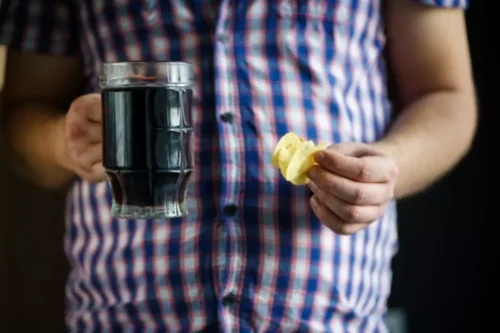
Additionally, anyone who feels they are not able to gain control of their drinking might consider the Substance Abuse and Mental Health Services Administration National Helpline. Don’t bring up the subject when they’re already drinking or hungover. If they’re intoxicated, they might be more likely to misunderstand you, lash out, or forget the details of the conversations. Wait until you’re both able to have a clear, unrushed, and uninterrupted conversation. Watching a friend or family member struggle with a binge-drinking habit can be difficult, even heart-wrenching. You’ll likely be there to witness their most reckless behavior, painful hangovers, and their sense of shame and depression afterwards.
Excessive drinking includes binge drinking and heavy drinking.

You might binge drink in order to feel confident talking, flirting, or making jokes with strangers. A few mixed drinks might lighten your mood in the evening. But the next morning, you notice that your depressive symptoms or anxious thoughts are worse than usual.
Alcohol and mental health MensLine Australia

Heavy drinking also has been linked to intentional injuries, such as suicide, as well as accidental injury and death. Remember that even though alcohol use is normalized in our culture, no amount of alcohol is good for you. The CDC recommends that if you don’t already drink, you shouldn’t start for any reason. Federal and state health agencies also offer resources and can refer you to someone who can help.
Binge Drinking and College Students
You might wake up with questions like, “Did I do something stupid to endanger my loved ones? ” These lapses in memory only add to the overall hangover and sense of dread you experience the next day. The main indicator of a binge-drinking episode is having four to five drinks (or more) within two hours. It isn’t linked to a dependency on alcohol, and the CDC frames it as a preventable problem. Showing your patients a standard drink chart (printable here PDF – 184 KB) will help inform them about drink equivalents and may help your patients to estimate their consumption more accurately.
It is essential to understand the risks of binge drinking and seek treatment if you can not stop drinking on your own. Because alcohol use is legal and common, it can be challenging to determine when your alcohol consumption has become problematic. However, it is crucial to be aware of the signs of alcohol abuse and addiction and seek treatment as soon as possible.

Large amounts of alcohol consumed over a long period of time can negatively impact the parts of your brain that deal with judgment, balance and coordination. Unlike binge drinking, the problem of alcohol use disorder isn’t measured by a particular number of drinks. Instead, the CDC defines it as a chronic condition, which means it’s a type of illness that’s persisting over a long period of time. Binge drinking can lead to several short-term and long-term effects. Someone who binge drinks may experience impaired judgment, nausea, vomiting, and even unconsciousness.
- Maybe your loved one has a tendency to say insensitive things while intoxicated, or perhaps they routinely drink and drive.
- Knowing your limits, including what number of drinks qualifies as binge drinking, is an excellent first step in preventing future binge drinking episodes.
- Listen to relatives, friends or co-workers when they ask you to examine your drinking habits or to seek help.
- Completely cutting alcohol out of your life is always an option.
In addition to taking breaks for water, make a habit of slowly sipping your alcohol. Rather than chug your beer or mixed drink, take time to hold it in your mouth and appreciate its taste. If you have a hard time moderating your pace, try to stick with drinks that have low alcohol content.
- A child with FASD might experience heart or bone problems, reduced attention span and memory, or learning disabilities.
- Simply having a drink to sip on might make you feel more at ease.
- Contact us today to find out which program might be right for you, or to begin the process of arranging for treatment.
- It might seem convenient when you have company over, but it also makes it easier to reach for multiple drinks while you’re alone.
If you’re a binge drinker, you may not drink every day, but when you do start drinking, you likely have a hard time calling it quits after just one or two drinks. Completely binge drinking cutting alcohol out of your life is always an option. But if you don’t want to take that big of a step, there are ways to drink more responsibly.
